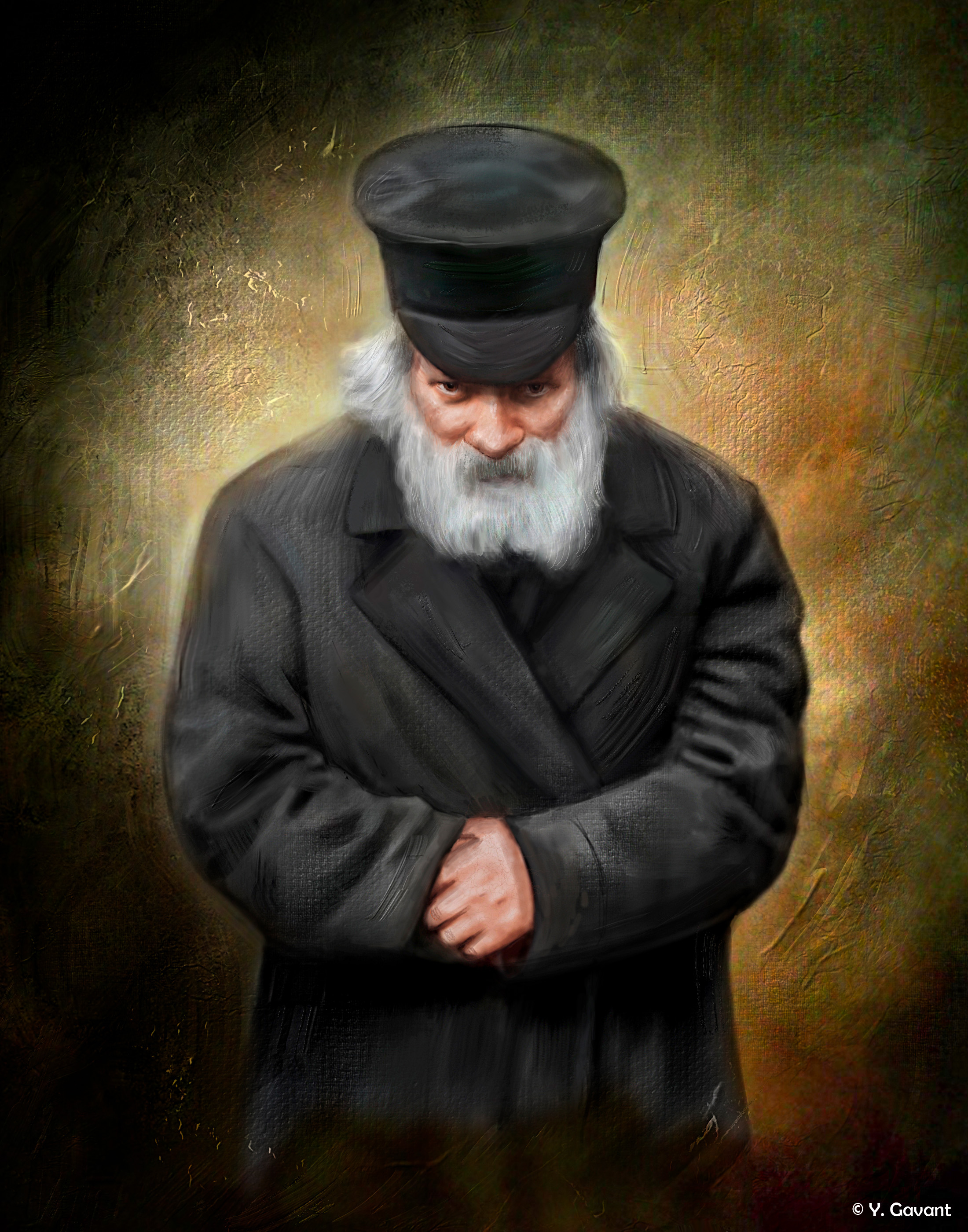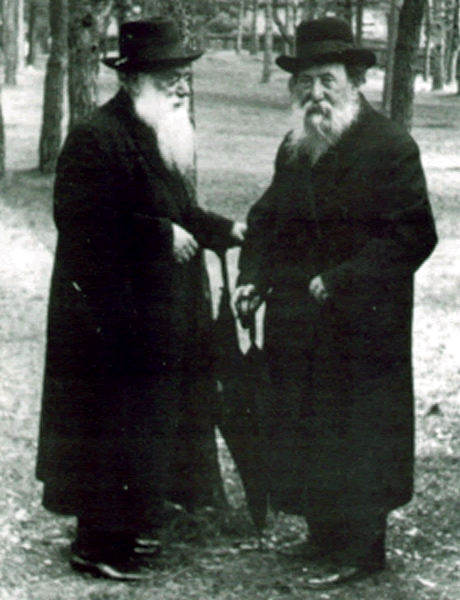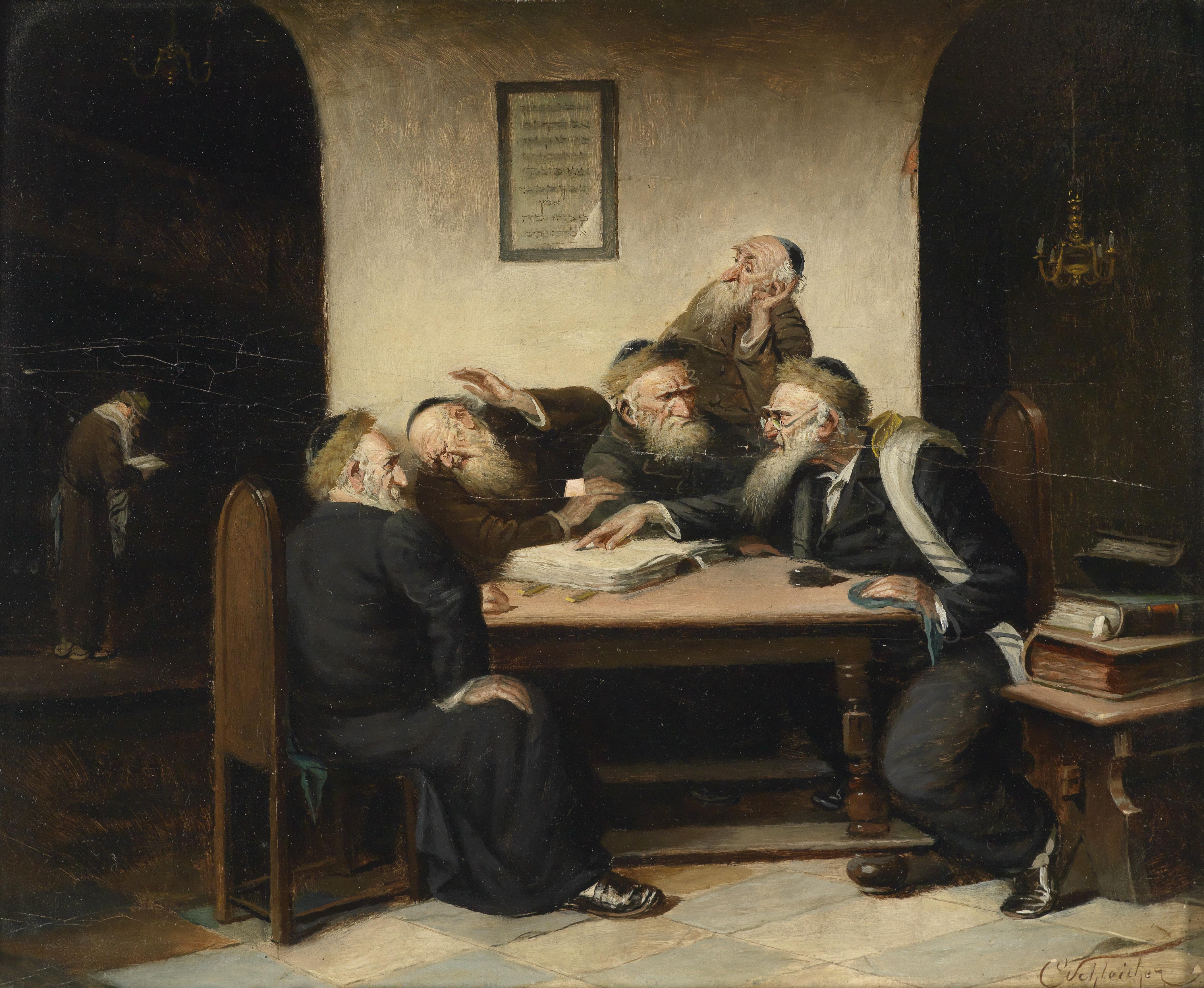|
Yosef Shlomo Kahaneman
Yosef Shlomo Kahaneman (; ; , known also as the Ponevezher Rav), was an Orthodox rabbi and rosh yeshiva (dean) of the Ponevezh Yeshiva. He was also a member of the Council of Torah Sages of Agudath Israel. Biography Kahaneman was born 13 May 1886 in Kuliai, Kovno Governorate of the Russian Empire (present-day Lithuania), a town of about 300, of whom about a third were Jewish. As a child he attended the yeshiva in Plungė led by Rabbi Chaim Yitzchak Bloch Hacohen. At the age of 14 he went to study Talmud at the Telshe yeshiva, where he studied Torah until he was twenty, under rabbis Eliezer Gordon and Shimon Shkop. He then spent half a year in Novardok yeshiva, after which he spent three years in Raduń Yeshiva studying under the Chofetz Chaim and Rabbi Naftoli Trop. He married the daughter of the rabbi of Vidzh, and became rabbi there at the end of 1911, when his father-in-law became the rabbi of Vilkomir (Ukmergė). His nephew was Daniel Kahneman, a psycholo ... [...More Info...] [...Related Items...] OR: [Wikipedia] [Google] [Baidu] |
Maran
Maran () is a Jewish honorific prefix for exceptionally respected rabbis. It is an alternate form of Aramaic ''mar'', meaning "master" (compare '' rav'', ''rabban''). Maran is especially preferred among Sephardic Jews, and commonly used in reference to Joseph Karo. When used without further qualification, "Maran" typically refers to Karo. Amongst contemporary rabbis, Ovadia Yosef is most closely associated with Maran. Within their respective communities, rabbis like Yosef Shalom Elyashiv, Elazar Shach and Joel Teitelbaum may be called "Maran" in combination with other titles. See also *Honorifics in Judaism There are a number of honorifics in Judaism that vary depending on the status of, and the relationship to, the person to whom one is referring. Hasid Ḥasīd is a Jewish honorific, frequently used as a term of exceptional respect in the Talmud ... * Mar * Maranatha References Orthodox rabbinic roles and titles Aramaic words and phrases Religious honorifics [...More Info...] [...Related Items...] OR: [Wikipedia] [Google] [Baidu] |
Lithuania
Lithuania, officially the Republic of Lithuania, is a country in the Baltic region of Europe. It is one of three Baltic states and lies on the eastern shore of the Baltic Sea, bordered by Latvia to the north, Belarus to the east and south, Poland to the south, and the Russian exclave, semi-exclave of Kaliningrad Oblast to the southwest, with a Maritime boundary, maritime border with Sweden to the west. Lithuania covers an area of , with a population of 2.89 million. Its capital and largest city is Vilnius; other major cities include Kaunas, Klaipėda, Šiauliai and Panevėžys. Lithuanians who are the titular nation and form the majority of the country's population, belong to the ethnolinguistic group of Balts and speak Lithuanian language, Lithuanian. For millennia, the southeastern shores of the Baltic Sea were inhabited by various Balts, Baltic tribes. In the 1230s, Lithuanian lands were united for the first time by Mindaugas, who formed the Kingdom of Lithuania on 6 July ... [...More Info...] [...Related Items...] OR: [Wikipedia] [Google] [Baidu] |
Panevėžys
Panevėžys () is the fifth-largest List of cities in Lithuania, city in Lithuania and the List of cities in the Baltic states by population, eighth-most-populous city in the Baltic States. it occupies with 89,100 inhabitants. As defined by Eurostat the population of the Panevėžys functional urban area that stretches beyond the city limits is estimated at 124,412 (as of 2022). The largest multifunctional arena in Panevėžys, Kalnapilio Arena, formerly known as Cido Arena, hosted the Eurobasket 2011 group matches. Panevėžys is an important cultural and economic hub in the country's northeast. Located on the banks of the Nevėžis River, the city is known for its strong industrial heritage and vibrant arts scene. Panevėžys is also considered as a gateway to the picturesque landscapes of the Aukštaitija region. The city is still known in the Jewish world for the eponymous Ponevezh Yeshiva. Name The name of the city is derived from the Lithuanian language, Lithuanian hyd ... [...More Info...] [...Related Items...] OR: [Wikipedia] [Google] [Baidu] |
Yitzhak Yaakov Rabinovich
Yitzhak Yaakov Rabinovich (1854–1919), , known also as reb Itzele Ponevezher, was an Orthodox rabbi, supporter of socialist ideas and founder of the Ponevezh Yeshiva. Biography Yitzhak Yaakov Rabinovich was born in 1854 in Shereshevo, Belorussia in a wealth family of merchant. He received private education of Talmud and at the age of 14 moved out of home to Selets in order to study with Yeruham Perlman — who later became noted rabbi of Minsk. A few years later Rabinovich, together with Chaim Soloveitchik moved to Brest-Litovsk. While studying together the two of them developed new method of studying Talmud: by logic and deep understanding of text - in contrast to the previously long-used method of ''pilpul'' (casuistry). In 1889, Rabinovich was appointed a teacher at the Slobodka yeshiva. However, due to challenges in accepting Musar ideology that the school followed, he left in 1894 and became a rabbi in Gorzd, Lithuania. Two years later (in 1896) he settled in Ponev ... [...More Info...] [...Related Items...] OR: [Wikipedia] [Google] [Baidu] |
Daniel Kahneman
Daniel Kahneman (; ; March 5, 1934 – March 27, 2024) was an Israeli-American psychologist best known for his work on the psychology of judgment and decision-making as well as behavioral economics, for which he was awarded the 2002 Nobel Memorial Prize in Economic Sciences together with Vernon L. Smith. Kahneman's published empirical findings challenge the assumption of human rationality prevailing in modern economic theory. Kahneman became known as the "grandfather of behavioral economics." With Amos Tversky and others, Kahneman established a cognitive basis for common human errors that arise from heuristics and biases, and developed prospect theory. In 2011, Kahneman was named by ''Foreign Policy'' magazine in its list of top global thinkers. In the same year, his book '' Thinking, Fast and Slow'', which summarizes much of his research, was published and became a best seller. In 2015, ''The Economist'' listed him as the seventh most influential economist in the world. Kah ... [...More Info...] [...Related Items...] OR: [Wikipedia] [Google] [Baidu] |
Ukmergė
Ukmergė (; previously ''Vilkmergė''; ) is a city in Vilnius County, Lithuania, located northwest of Vilnius. It is the administrative center of the Ukmergė District Municipality. Ukmergė (Vilkmergė) was mentioned for the first time as a settlement in 1333. The Ukmergė Old Town contains structure of old streets and squares, also well-preserved buildings of the 19th-20th centuries, therefore it was included in the Registry of Cultural Property (Lithuania), Registry of Cultural Property of Lithuania. Etymology and variant names The city took its original name ''Vilkmergė'' from the River, which was initially called Vilkmergė and assumed a diminutive form after the growth of the settlement. It is commonly thought that the name may be translated as "she-wolf", from the combination of ''Vilkas'' (wolf) and ''Merga'' (maiden). More likely the second root of the dual-stemmed name is the verb ''merg-/merk-'' meaning "to submerge" or "to dip". According to local legend, Vilkm ... [...More Info...] [...Related Items...] OR: [Wikipedia] [Google] [Baidu] |
Naftoli Trop
Rabbi Naftoli Trop (April 1871 - September 24, 1928) was a renowned Talmudist and Talmid Chacham. He served as ''rosh yeshiva'' of Raduń Yeshiva, Yeshiva Chofetz Chaim in Radun, Belarus, Radun, Second Polish Republic, Poland. Early years In his youth he studied with his father, who was ''rosh yeshiva'' of a local yeshiva, and at 14, he left to learn in Kelm Talmud Torah, Kelm, where his study partner for ten years was Yerucham Levovitz, who went on to become ''Mashgiach ruchani, mashgiach'' of the Mir Yeshiva (Poland), Mir yeshiva. Rabbi Trop proceeded to briefly study in Yeshivas Knesses Yisrael (Slabodka), Slabodka and Telshe yeshiva, Telz, where he became close to Eliezer Gordon. He learned for a short time in the Novardok yeshiva in Slonim, where he formed a close relationship with Yosef Yozel Horwitz (known as "the ''Alter'' of Novardok"). In 1889, when Yaakov Yitzchak (Itzele) Rabinowitz was appointed ''rosh yeshiva'' at Slabodka, Trop returned to Slabodka to study under Rab ... [...More Info...] [...Related Items...] OR: [Wikipedia] [Google] [Baidu] |
Yisrael Meir Kagan
Yisrael Meir ha-Kohen Kagan (February 6, 1838 – September 15, 1933) was an influential Lithuanian Jewish rabbi, Halakhist, posek, and ethicist whose works continue to be widely influential in Orthodox Jewish life. He was known popularly as the Chofetz Chaim, after his book on lashon hara, and was also well known for the Mishna Berurah, his book on ritual law. Biography Kagan was born on February 6, 1838 in Dzienciol (), Grodno Governorate in Russian Empire (today Dzyatlava in Belarus), and died on 15 September 1933 in Raduń (), Nowogródek Voivodeship in Second Polish Republic (now in Belarus). When Kagan was ten years old, his father died in a cholera epidemic at the age of 46. His mother moved the family to Vilnius in order to continue her son's Jewish education. While in Vilnius, Kagan became a student of Jacob Barit. Kagan's mother remarried and moved to Radin, taking the name of her new husband, Poupko, which the young Kagan adopted as well. At 17, he married the ... [...More Info...] [...Related Items...] OR: [Wikipedia] [Google] [Baidu] |
Shimon Shkop
Shimon Yehuda Shkop (; 1860 – October 22, 1939) was Rosh Yeshiva (dean) of the Yeshiva of Telshe, and later of Yeshiva Shaar HaTorah of Grodno. Having innovated a style of Torah study, applying both to Halacha and to Talmud, he was widely regarded as a major Talmid Chacham (Talmudic scholar). Biography Early life Shkop was born in Torez, today in Ukraine, in 1860. At the age of twelve he went to study in the Mir Yeshiva for two years. He then traveled to the Volozhin yeshiva where he studied under Naftali Zvi Yehuda Berlin, "Netziv", for six years. His study partners included Chaim Ozer Grodzinski. Shkop also joined the ''chaburah'' of Rav Chaim Soloveitchik, "Chaim Brisker", analyzing the ''gemara'' using what would come to be called the " Brisker derech"; he was thus among the first students exposed to the new approach. Telz and Grodno Shkop married a niece of Eliezer Gordon, and in 1884 was appointed a rosh mesivta at Telz Yeshiva, where he remained for 18 ... [...More Info...] [...Related Items...] OR: [Wikipedia] [Google] [Baidu] |
Eliezer Gordon
Rabbi Eliezer Gordon (; 1841–1910) also known as Reb Laizer Telzer (), served as the rabbi and ''rosh yeshiva'' of Telz, Lithuania. Early years Eliezer Gordon was born in 1841 in the village of Chernyaty (or Chernian in Yiddish), Belarus, near Svir. His father, Avrohom Shmuel Gordon, was a student of Chaim of Volozhin. As a youngster, he studied in the Zaretza Yeshiva in Vilna, later transferring to the Yeshiva of Yisroel Salanter at the Kovno kollel yeshiva in Kovno. Concurrent outstanding fellow students included Yitzchak Blazer, Simcha Zissel Ziv, Naftali Amsterdam, Yerucham Perlman and Jacob Joseph. Salanter realized that Gordon had great potential and appointed him as a maggid shiur in the yeshiva at a young age. After his father-in-law's death, Gordon succeeded the latter as rabbi of Kovno — but he only stayed for three months. On Tuesday, 24 March (6th Nissan) 1874, Gordon took over the position of Chief Rabbi at Kelm, where he remained for nine years and f ... [...More Info...] [...Related Items...] OR: [Wikipedia] [Google] [Baidu] |
Torah Study
Torah study is the study of the Torah, Hebrew Bible, Talmud, responsa, rabbinic literature, and similar works, all of which are Judaism's Sifrei kodesh, religious texts. According to Rabbinic Judaism, the study is done for the purpose of the ''mitzvah'' ("commandment") of Torah study itself. This practice is present to an extent in all religious branches of Judaism, and is considered of paramount importance among religious Jews. Torah study has evolved over the generations, as lifestyles changed and also as new texts were written. Traditional view In rabbinic literature, a heavy emphasis is placed on Torah study for Jews, Jewish males, with women being exempt. This literature teaches an eagerness for such study and a thirst for knowledge that expands beyond the text of the Tanakh to the entire Oral Torah. Some examples of traditional religious teachings: * The study of Torah is "equal to all" of the ''Mitzvah, mitzvot'' of Honour thy father and thy mother, honouring one's pare ... [...More Info...] [...Related Items...] OR: [Wikipedia] [Google] [Baidu] |


